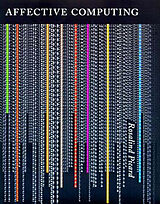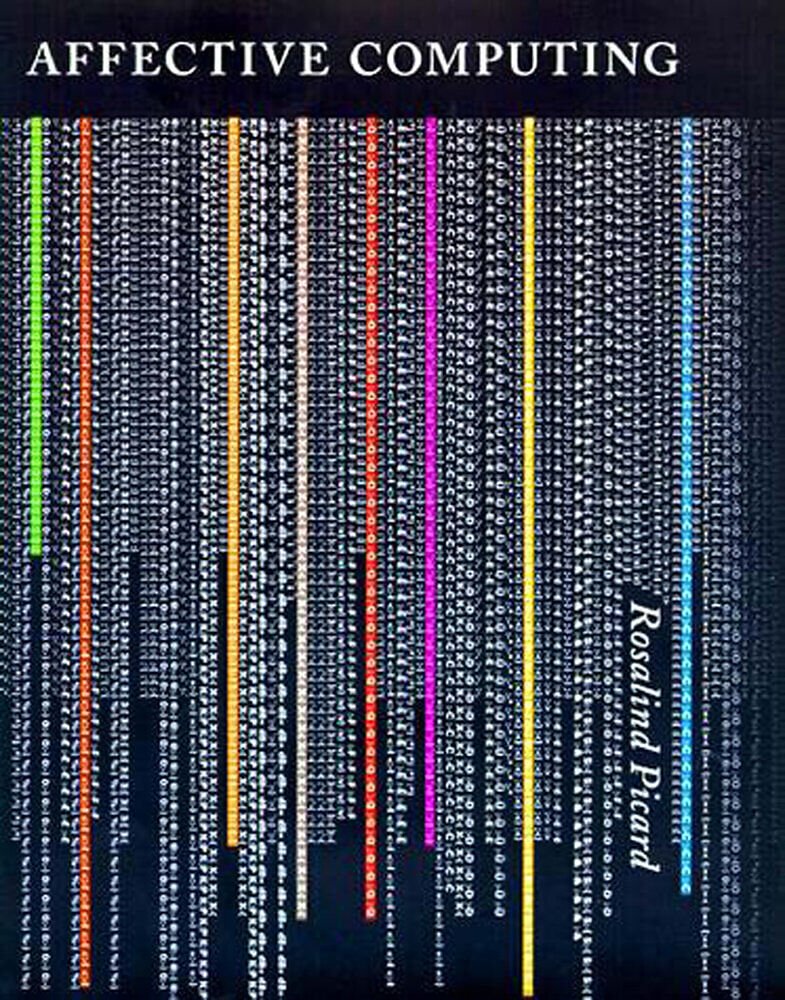Affective Computing
Einband:
Kartonierter Einband
EAN:
9780262661157
Untertitel:
Englisch
Autor:
Rosalind W. Picard
Herausgeber:
MIT Press
Anzahl Seiten:
306
Erscheinungsdatum:
24.07.2000
ISBN:
0262661152
Informationen zum Autor Rosalind W. Picard Klappentext According to Rosalind Picard, if we want computers to be genuinely intelligent and to interact naturally with us, we must give computers the ability to recognize, understand, even to have and express emotions. The latest scientific findings indicate that emotions play an essential role in decision making, perception, learning, and morethat is, they influence the very mechanisms of rational thinking. Not only too much, but too little emotion can impair decision making. According to Rosalind Picard, if we want computers to be genuinely intelligent and to interact naturally with us, we must give computers the ability to recognize, understand, even to have and express emotions. Part 1 of this book provides the intellectual framework for affective computing. It includes background on human emotions, requirements for emotionally intelligent computers, applications of affective computing, and moral and social questions raised by the technology. Part 2 discusses the design and construction of affective computers. Although this material is more technical than that in Part 1, the author has kept it less technical than typical scientific publications in order to make it accessible to newcomers. Topics in Part 2 include signal-based representations of emotions, human affect recognition as a pattern recognition and learning problem, recent and ongoing efforts to build models of emotion for synthesizing emotions in computers, and the new application area of affective wearable computers. Zusammenfassung According to Rosalind Picard, if we want computers to be genuinely intelligent and to interact naturally with us, we must give computers the ability to recognize, understand, even to have and express emotions. The latest scientific findings indicate that emotions play an essential role in decision making, perception, learning, and morethat is, they influence the very mechanisms of rational thinking. Not only too much, but too little emotion can impair decision making. According to Rosalind Picard, if we want computers to be genuinely intelligent and to interact naturally with us, we must give computers the ability to recognize, understand, even to have and express emotions. Part 1 of this book provides the intellectual framework for affective computing. It includes background on human emotions, requirements for emotionally intelligent computers, applications of affective computing, and moral and social questions raised by the technology. Part 2 discusses the design and construction of affective computers. Although this material is more technical than that in Part 1, the author has kept it less technical than typical scientific publications in order to make it accessible to newcomers. Topics in Part 2 include signal-based representations of emotions, human affect recognition as a pattern recognition and learning problem, recent and ongoing efforts to build models of emotion for synthesizing emotions in computers, and the new application area of affective wearable computers. Inhaltsverzeichnis Part 1 Envisioning affective computing: emotions are physical and cognitive; affective computers; applications of affective computing; potential concerns. Part 2 Building affective computing: affective signals and systems; recognizing and expressing affect; emotion synthesis; affective wearables. ...
Autorentext
Rosalind W. Picard
Klappentext
According to Rosalind Picard, if we want computers to be genuinely intelligent and to interact naturally with us, we must give computers the ability to recognize, understand, even to have and express emotions.The latest scientific findings indicate that emotions play an essential role in decision making, perception, learning, and more—that is, they influence the very mechanisms of rational thinking. Not only too much, but too little emotion can impair decision making. According to Rosalind Picard, if we want computers to be genuinely intelligent and to interact naturally with us, we must give computers the ability to recognize, understand, even to have and express emotions.Part 1 of this book provides the intellectual framework for affective computing. It includes background on human emotions, requirements for emotionally intelligent computers, applications of affective computing, and moral and social questions raised by the technology. Part 2 discusses the design and construction of affective computers. Although this material is more technical than that in Part 1, the author has kept it less technical than typical scientific publications in order to make it accessible to newcomers. Topics in Part 2 include signal-based representations of emotions, human affect recognition as a pattern recognition and learning problem, recent and ongoing efforts to build models of emotion for synthesizing emotions in computers, and the new application area of affective wearable computers.
Inhalt
Part 1 Envisioning affective computing: emotions are physical and cognitive; affective computers; applications of affective computing; potential concerns. Part 2 Building affective computing: affective signals and systems; recognizing and expressing affect; emotion synthesis; affective wearables.

Leider konnten wir für diesen Artikel keine Preise ermitteln ...
billigbuch.ch sucht jetzt für Sie die besten Angebote ...
Die aktuellen Verkaufspreise von 6 Onlineshops werden in Realtime abgefragt.
Sie können das gewünschte Produkt anschliessend direkt beim Anbieter Ihrer Wahl bestellen.
Loading...
Die aktuellen Verkaufspreise von 6 Onlineshops werden in Realtime abgefragt.
Sie können das gewünschte Produkt anschliessend direkt beim Anbieter Ihrer Wahl bestellen.
| # | Onlineshop | Preis CHF | Versand CHF | Total CHF | ||
|---|---|---|---|---|---|---|
| 1 | Seller | 0.00 | 0.00 | 0.00 |
